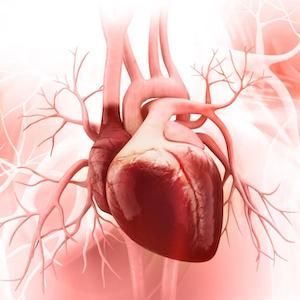Article
Study Shows First-Time Reversal of Transthyretin Amyloid Cardiomyopathy
Author(s):
Improved symptoms in 3 men with heart failure caused by ATTR-CM were confirmed by cardiovascular magnetic resonance scans showing the build-up of amyloid proteins had cleared.
Credit: Adobe Images

New research suggests 3 men diagnosed with heart failure caused by transthyretin cardiac amyloid, a build-up of protein deposits in the heart, are now free of symptoms after their condition spontaneously reversed.1
The investigative team from the University of College London (UCL) noted that the progressive condition had previously been considered irreversible, with half of the diagnosed patients dying within 4 years of diagnosis.
“We have seen for the first time that the heart can get better with this disease,” Marianna Fontana, MD, PhD, from the division of medicine at UCL, said in a statement. “This has not been known until now and it raises the bar for what might be possible with new treatments.”
ATTR is caused by the build-up of amyloid deposits consisting of a blood protein called transthyretin and can be hereditary or non-hereditary. Although available treatment generally aim to relieve the symptoms of heart failure, including fatigue, swelling in the legs or abdomen, and shortness of breath with activity, it may not address the amyloid.2 Investigators noted several therapies in trials that may reduce TTR protein concentration in the blood and slow ongoing amyloid formation.
Advances in imaging techniques have been linked to substantially greater numbers of people diagnosed with amyloidosis that 2 decades ago when diagnosis previously needed a biopsy. Investigators noted that imaging techniques allow for more precise monitoring of the burden of amyloid on the heart and thus, disease progression. As a result, they suggest it has become easier to detect cases where the condition has reversed, rather than remained stable.
The study population included 3 men (aged 68, 76, and 82) who were diagnosed with transthyretin cardiac amyloidosis, but later recovered. The current study was initiated when one patient (68 years old) self-reported symptom improvement, prompting the investigative team to analyze the records of 1,663 patients diagnosed with ATTR-CM. From this population, the team identified 2 more cases of symptom improvement, while the rest of the cohort showed no reversal of the condition.
Investigators confirmed the recoveries of the 3 men using blood tests, imaging techniques including echocardiography, cardiovascular magnetic resonance (CMR) scans, scintigraphy, and for one of the patients, an assessment of exercise capacity. Self-reports of symptom improvement were confirmed by CMR scans showing the build-up of amyloid proteins in the heart had cleared. The CMR scans revealed heart structure and function returned to a near-normal state and amyloid was almost completely cleared.
Investigators additionally observed evidence of an immune response in the 3 men that specifically targeted amyloid. One of the 3 men underwent a heart muscle biopsy that showed an atypical inflammatory response surrounding the amyloid deposits. However, investigators saw no inflammatory response in 286 biopsies from patients whose disease had followed a normal progression.
To investigate further, investigators observed antibodies in the 3 patients that bound specifically to ATTR amyloid deposits in mouse and human tissue and to synthetic ATTR amyloid. There were no antibodies present in 350 patients in the cohort with a typical clinical course.
Investigators noted the harnessing of these antibodies could be combined with new therapies being trialed that suppress TTR protein production and could enable clinicians to clear amyloid and prevent further amyloid deposition.
“Whether these antibodies caused the patients’ recovery is not conclusively proven,” Julian Gillmore, head of the UCL Centre for Amyloidosis at the Royal Free Hospital, said in a statement. “However, our data indicates that this is highly likely and there is potential for such antibodies to be recreated in a lab and used as a therapy. We are currently investigating this further, although this research remains at the preliminary stage.”
References
- London UC. Newswise latest news: News and press releases in science, Medicine, life, and business. Newswise. June 5, 2023. Accessed June 7, 2023. https://www.newswise.com/articles/devastating-heart-condition-can-be-reversed-study-shows-for-the-first-time?ref_select=Ys7cQPyLwO5H2GuP6BToUw.
- Transthyretin amyloidosis (attr-cm): Types, causes, treatment. Cleveland Clinic. Accessed June 7, 2023. https://my.clevelandclinic.org/health/diseases/17855-amyloidosis-attr.




